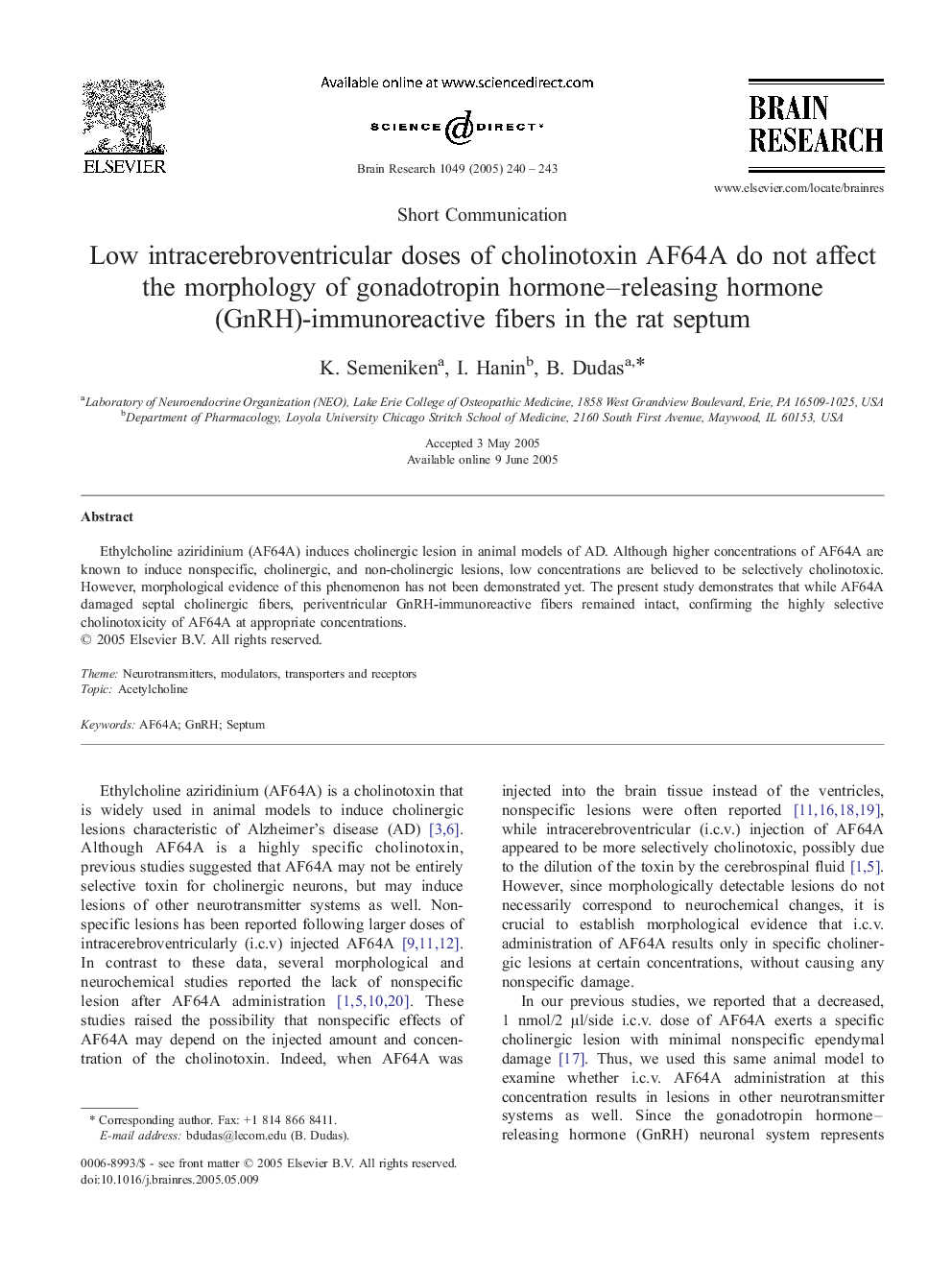| Article ID | Journal | Published Year | Pages | File Type |
|---|---|---|---|---|
| 9416163 | Brain Research | 2005 | 4 Pages |
Abstract
Ethylcholine aziridinium (AF64A) induces cholinergic lesion in animal models of AD. Although higher concentrations of AF64A are known to induce nonspecific, cholinergic, and non-cholinergic lesions, low concentrations are believed to be selectively cholinotoxic. However, morphological evidence of this phenomenon has not been demonstrated yet. The present study demonstrates that while AF64A damaged septal cholinergic fibers, periventricular GnRH-immunoreactive fibers remained intact, confirming the highly selective cholinotoxicity of AF64A at appropriate concentrations.
Related Topics
Life Sciences
Neuroscience
Neuroscience (General)
Authors
K. Semeniken, I. Hanin, B. Dudas,
